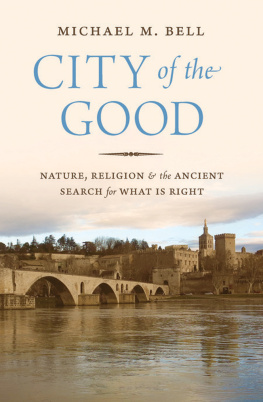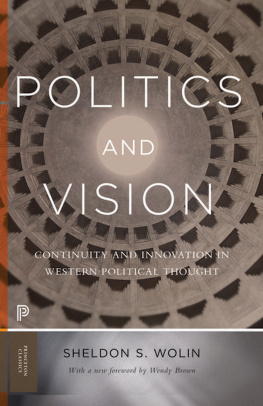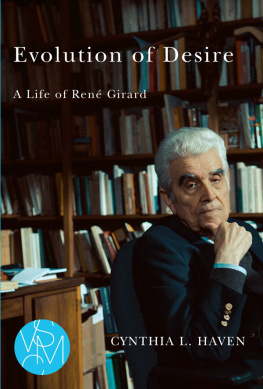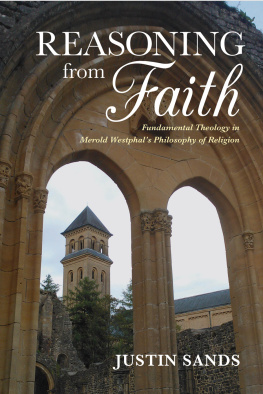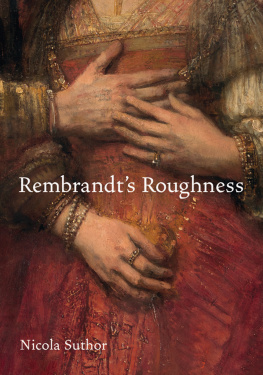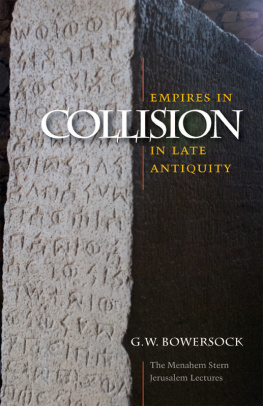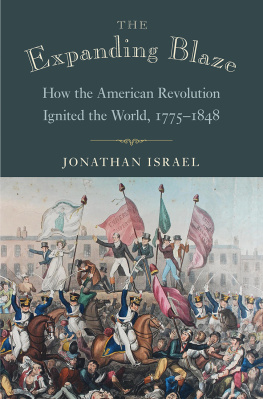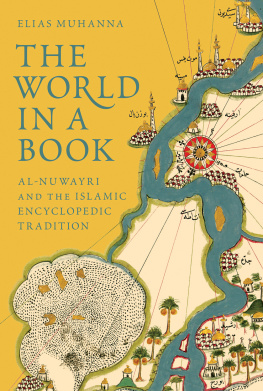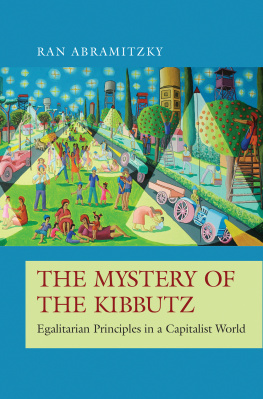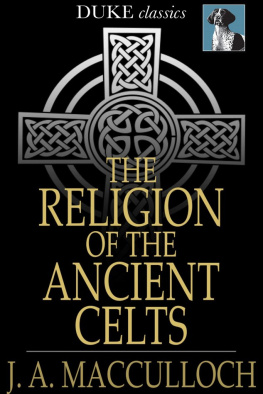Project Muse. - City of the Good Nature, Religion, and the Ancient Search for What Is Right
Here you can read online Project Muse. - City of the Good Nature, Religion, and the Ancient Search for What Is Right full text of the book (entire story) in english for free. Download pdf and epub, get meaning, cover and reviews about this ebook. year: 2020;2018, publisher: Princeton University Press, genre: Religion. Description of the work, (preface) as well as reviews are available. Best literature library LitArk.com created for fans of good reading and offers a wide selection of genres:
Romance novel
Science fiction
Adventure
Detective
Science
History
Home and family
Prose
Art
Politics
Computer
Non-fiction
Religion
Business
Children
Humor
Choose a favorite category and find really read worthwhile books. Enjoy immersion in the world of imagination, feel the emotions of the characters or learn something new for yourself, make an fascinating discovery.
- Book:City of the Good Nature, Religion, and the Ancient Search for What Is Right
- Author:
- Publisher:Princeton University Press
- Genre:
- Year:2020;2018
- Rating:3 / 5
- Favourites:Add to favourites
- Your mark:
- 60
- 1
- 2
- 3
- 4
- 5
City of the Good Nature, Religion, and the Ancient Search for What Is Right: summary, description and annotation
We offer to read an annotation, description, summary or preface (depends on what the author of the book "City of the Good Nature, Religion, and the Ancient Search for What Is Right" wrote himself). If you haven't found the necessary information about the book — write in the comments, we will try to find it.
City of the Good Nature, Religion, and the Ancient Search for What Is Right — read online for free the complete book (whole text) full work
Below is the text of the book, divided by pages. System saving the place of the last page read, allows you to conveniently read the book "City of the Good Nature, Religion, and the Ancient Search for What Is Right" online for free, without having to search again every time where you left off. Put a bookmark, and you can go to the page where you finished reading at any time.
Font size:
Interval:
Bookmark:

CITY OF THE GOOD
City of the Good
NATURE, RELIGION, AND THE ANCIENT SEARCH FOR WHAT IS RIGHT
MICHAEL MAYERFELD BELL
PRINCETON UNIVERSITY PRESS
PRINCETON & OXFORD
Copyright 2018 by Princeton University Press
Published by Princeton University Press,
41 William Street, Princeton, New Jersey 08540
In the United Kingdom: Princeton University Press,
6 Oxford Street, Woodstock, Oxfordshire OX20 1TR
press.princeton.edu
Jacket photograph: Avignon, France, courtesy of the author
All Rights Reserved
ISBN 978-0-691-16509-7
Library of Congress Control Number: 2017945408
British Library Cataloging-in-Publication Data is available
This book has been composed in Arno Pro
Printed on acid-free paper.
Printed in the United States of America
10 9 8 7 6 5 4 3 2 1
For my mother
Island dweller, four yeller
Skiff rower, flower grower
Tongue trainer, word explainer
Wisdom giver, full life liver
Old Lady of the River
CONTENTS
Preface
ON LOSING YOUR CHILDREN IN THE VATICAN
WHERE DID THE KIDS GO? my wife askeda classic question one parent asks another.
I dont know. I thought they were with you, I repliedthe classic response to that classic question.
Not that we were really worried. The Vatican Museum channels the thousands in one direction through its long galleries, with little opportunity for deviation. Even pausing for a moment to linger on an object or painting sets up eddies in the flow, building a pressure of impatience that soon gets the feet moving again on toward the Sistine Chapel, where we had just arrived. Besides, our son was then twenty-six and our daughter eighteen. Besides, it was the Vatican.
Ill go back and see if I can find them, Diane said, continuing with the whispered tones we had been using.
A brave offer. The river into the Sistine Chapel pours through one narrow door, flooding into a lake of all manner of humanity that eventually trickles out the other end via another small door. She would have to squirm hard to go upstream.
Okay. Best leave me your backpack, though, I said with a hush. So you can wiggle through a bit easier.
Thanks. You stay right here. Dont move.
Off she went. I turned my eyes upward and all around, joining the collective quiet wonder at Michelangelos vision of the divine in The Last Judgment, forty-five feet high up the Sistine Chapel front wall and continuing onto the ceiling, humbling believer and nonbeliever alike.
But I soon found my mind drifting toward reflection on what was not in that vision. Maybe it was the oppressive stuffiness of the packed room. Maybe it was the over-loud announcement in Italian and then English that periodically curdled the air with This is a holy place of reflection. Please maintain silence. No photographs. Or words to that effecta disembodied voice of rules coming down from on high. I dont know. For whatever reason, the mood the chapel conjured in me was analytic, not beatific. I started mentally ticking off the absences from the presences. No animals. No forests. No gardens, aside from Adam and Eve being evicted from Eden in one of Michelangelos ceiling panels. No farming. No eating. No laughing. No sex. No politicians. No people of color. Almost no women. Such a heaven seemed a starkly limited place. But what troubled me most was the spaces grand declaration that this was all for the good.
My neck was tired by the time Diane came back, still without Sam and Eleanor. She motioned a shush at me, as I started to inquire. I stood by as Diane took her own look at the fabulously painted walls and ceilings. She was getting it more than me. But Diane, too, soon had her fill of wonder, perhaps limited by mild parental separation anxiety. We headed for the door, fresher air, and freedom to talk aloud.
Eventually we washed up in the coffee shop and took turns standing outside it at a corner between two corridorsone leading to the outdoors and one to the shop, a corner past which every visitor must eventually courseuntil Sam and Eleanor appeared with excited looks. They had found some side passages we had missed, leading to whole other lands of art. Literally. The Vaticans Egyptian Museum. Its Ethnological Museum. Its Cartography Museum. And its fabulous gallery of Greek and Roman busts.
The children must, in time, lead the parents. Diane and I followed delightedly, taking another look through the long Vatican galleries until they showed us the entrances to the side passages we had missed. Here there were animals, often combined with images of a highly diverse divine. Here there were representations of forests and farms and gardens, of streams and rivers and oceans, and of human labor in them. Here there was overt sexuality (albeit with many a fig-leaf later added to the genitals of statues). Here there were lots and lots of political figureskings, queens, emperors, pharaohs, chiefs, and more. Here there were gods and goddesses in conflict, pursuing projects and ambitions, often involving the conflicts, projects, and ambitions of humans. And here there were many representations of women and people of color. Here we found life more nearly as it is really lived, an entanglement of world, being, and passionof nature, faith, and the human communitywhere the good and the bad are not easily separated and where politics cannot be escaped.
The ecologically and egalitarian minded have to wonder why the worlds dominant religions have long relegated these basic experiences of the human condition mainly to their side passages. The same question could, and should, be asked of our dominant philosophies of nature and environment. In this book, I try to answer that questiona question that, at last, traditions of nature and religion increasingly find themselves asking as well. They ask it because many among the newer generations, and some among the older ones, no longer rush past those other corridors, and find much meaning and even delight there. So I wish might we all.
ACKNOWLEDGMENTS
NOT JUST A CITY but a whole landscape of good people contributed to the writing of this book. Indeed, a whole lifescape: people from across the sweep of my sixty years show up in various ways in its pages, many explicitly, many more implicitly.
My greatest thanks go to my editor at Princeton, Meagan Levinson. She gave the manuscript a very close readsomething I fear many editors no longer seem to find time for. Meagans reading was immensely helpful, at every level: sentence, paragraph, chapter, and the argument of the whole book. Thank you, Meagan.
Also at Princeton, I want to give sincere thanks to my copy editor, Joseph Dahm. Its a bit of a phantom experience, working with a copy editor these days. Weve never met. But his careful eye, his sensitivity to my narrative style, and his gentle way of prodding me along were models of the copy editors craft. I hope we do meet one day. Thank you, Joseph.
The rest of Princetons staff were also great to work with. Thanks especially to Jenny Wolkowicki, my production editor, and to Eric Schwartz, the former sociology editor at Princeton who initially recruited me and talked me through a lot of issues at the early stages of my writing. Hes at lucky Columbia University Press now.
I was lucky too with the two excellent anonymous reviewers that Princeton arranged for the book. One of them subsequently identified himself: the environmental author Jules Pretty, who is also professor of environment and society at the University of Essex in the United Kingdom. Jules and the other reviewer helped me immensely in figuring out where the book was heading and how to get there.
Next pageFont size:
Interval:
Bookmark:
Similar books «City of the Good Nature, Religion, and the Ancient Search for What Is Right»
Look at similar books to City of the Good Nature, Religion, and the Ancient Search for What Is Right. We have selected literature similar in name and meaning in the hope of providing readers with more options to find new, interesting, not yet read works.
Discussion, reviews of the book City of the Good Nature, Religion, and the Ancient Search for What Is Right and just readers' own opinions. Leave your comments, write what you think about the work, its meaning or the main characters. Specify what exactly you liked and what you didn't like, and why you think so.

